Gianluigi Trovesi, Gianni Coscia - Frère Jacques: Round About Offenbach (2011)
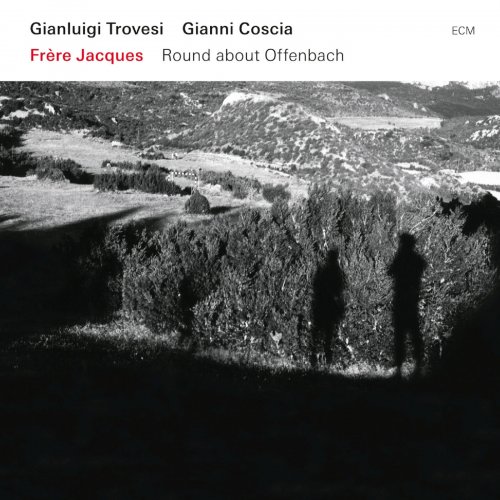
Artist: Gianluigi Trovesi, Gianni Coscia
Title: Frère Jacques: Round About Offenbach
Year Of Release: 2011
Label: ECM
Genre: Classical, Contemporary Jazz
Quality: FLAC (tracks) / MP3 320 Kbps
Total Time: 01:13:05
Total Size: 352 Mb / 190 Mb
WebSite: Album Preview
Tracklist: Title: Frère Jacques: Round About Offenbach
Year Of Release: 2011
Label: ECM
Genre: Classical, Contemporary Jazz
Quality: FLAC (tracks) / MP3 320 Kbps
Total Time: 01:13:05
Total Size: 352 Mb / 190 Mb
WebSite: Album Preview
1. Sognando Hélène / Oui ! C'est Un Rêve 6:48
2. Ah ! Que Les Hommes Sont Bêtes / Mon Dieu, Mon Dieu 2:09
3. Piff, Paff, Pouff / La Duchessa Nei Caraibi 3:51
4. Tangoffenbach 4:32
5. Ah ! Vivre Deux / L'Eccentrico Inventore 4:02
6. Et Moi ? / No, Tu No ! 2:08
7. La Voix 3:03
8. Parton Le Barcarole 3:53
9. Beguine Del Fauno 2:44
10. Sei Italiano? / No ! ... Je Suis Brésilien 6:08
11. La Duchessa Della Czarda 2:05
12. C'est Une Chanson D'Amour 1:17
13. Galop... Trotterellando 7:29
14. Le Jugement De Paris / Ma ! Non So ! 5:57
15. Dedicated To Hélène And Her Little Birds 5:14
16. Metamorfosi... Pour Séduire 4:41
17. Minuetto / Olympia 2:19
18. Ouverture / Un Americano A Troia 4:28
19. Epilogue 1:25
Performers:
Gianluigi Trovesi, piccolo and alto clarinets
Gianni Coscia, accordion
In search of Brother Jacques, Mr. Offenbach, the great iconoclast, composer of operettas and wound-bringer to discerning classical minds. Our guides, multi-reedist Gianluigi Trovesi and accordionist Gianni Coscia. The itinerary destroys borders, forges new ones in their wake, and takes every path with more than a grain of salt. The melodies take on an ember glow, gesticulating in the manner of an oil painter’s brush and leaving behind a portrait that is offering and caricature in one. We stumble and marvel at what impedes our feet, knowing that we can only sit this one out and accept the frivolity of its passage. It is the pageant, and we the hapless spectators, ears sharpened to the whim of interpretation.
Scholar Heather Hadlock writes of Offenbach’s Les Contes d’Hoffmann as a “death-utterance,” so concerned is his only (and unfinished) opera with death and its many reflections, to say nothing of its emergence from the pen of a dying man himself. In the course of the work, Offenbach “reviews his own compositional past, drawing its various elements into a musico-dramatic kaleidoscope.” And so, Hadlock concludes, we might better see it as “undead,” for the narrator lives and speaks on even after his symbolic passing. Doubtless, the listener will find in Trovesi and Coscia’s striking reinventions a death-defying vivaciousness on par with their sources. Breath and bellows jump from their digital oven like myriad gingerbread men, running nakedly and wittily through Hoffmann with all the requisite stagecraft such activity would require to convince us of its aliveness. Fitting, too, is the “Epilogue” drawn from the same, which ends the album on a funereal pitch.
Most of what precedes it, however, seats us at a banquet table of delights. The four opéras bouffes—operettas rich in parody and farce named for the Théâtre des Bouffes-Parisiens at which Offenbach premiered them, if not the other way around—sampled here come out of a particularly fruitful tenure, during which time the composer produced some of his most popular work. Of La belle Hélène (1864), La vie parisienne (1866), La Grande-Duchesse de Gérolstein (1867), La Périchole (1868), he quipped most characteristically, “I am certainly the Father, but together they are the Son and the Wholly Spirited.” Trovesi and Coscia are more than happy to toss these ingredients almost cartoonishly in their kitchen. With herbs and stalks a-flying, they include whatever comes to mind in the largest pot they can find, only to ladle the resulting concoction with butler-like care into our bowls. It’s all we can do as their guests to not dip our spoons in unison, and join in the after-dinner dancing into which the sheer joy of these flavors bids us welcome.
To be sure, these provide a rich and complementary tasting experience. The truffle of Trovesi’s alto clarinet blends into Coscia’s creamy leeks, each enhancing the other to infinite effect. La vie parisienne provides some of the album’s maddest brilliance, ambulating like feet on a mission to stir up gossip in the village square. From Mozartian prances to fervent declarations, the remainder flies. Yet it is in the improvisatory hands of our fantastic duo where lie the deepest treasures. Among them are the vivid gems of “Tangoffenbach” and “Dedicated to Hélène and her little birds,” each an aperitif of smoothest finish. These are monologues that sing and move, bringing shadow to can-can, and lipstick to statues.
This is a diarist’s playbook, a sincere exploration of passion and obsession that not only pays tribute to but also transcends its namesake, all the while caging the spark of creativity in action. What’s left is an affirmation…and a smile.
Scholar Heather Hadlock writes of Offenbach’s Les Contes d’Hoffmann as a “death-utterance,” so concerned is his only (and unfinished) opera with death and its many reflections, to say nothing of its emergence from the pen of a dying man himself. In the course of the work, Offenbach “reviews his own compositional past, drawing its various elements into a musico-dramatic kaleidoscope.” And so, Hadlock concludes, we might better see it as “undead,” for the narrator lives and speaks on even after his symbolic passing. Doubtless, the listener will find in Trovesi and Coscia’s striking reinventions a death-defying vivaciousness on par with their sources. Breath and bellows jump from their digital oven like myriad gingerbread men, running nakedly and wittily through Hoffmann with all the requisite stagecraft such activity would require to convince us of its aliveness. Fitting, too, is the “Epilogue” drawn from the same, which ends the album on a funereal pitch.
Most of what precedes it, however, seats us at a banquet table of delights. The four opéras bouffes—operettas rich in parody and farce named for the Théâtre des Bouffes-Parisiens at which Offenbach premiered them, if not the other way around—sampled here come out of a particularly fruitful tenure, during which time the composer produced some of his most popular work. Of La belle Hélène (1864), La vie parisienne (1866), La Grande-Duchesse de Gérolstein (1867), La Périchole (1868), he quipped most characteristically, “I am certainly the Father, but together they are the Son and the Wholly Spirited.” Trovesi and Coscia are more than happy to toss these ingredients almost cartoonishly in their kitchen. With herbs and stalks a-flying, they include whatever comes to mind in the largest pot they can find, only to ladle the resulting concoction with butler-like care into our bowls. It’s all we can do as their guests to not dip our spoons in unison, and join in the after-dinner dancing into which the sheer joy of these flavors bids us welcome.
To be sure, these provide a rich and complementary tasting experience. The truffle of Trovesi’s alto clarinet blends into Coscia’s creamy leeks, each enhancing the other to infinite effect. La vie parisienne provides some of the album’s maddest brilliance, ambulating like feet on a mission to stir up gossip in the village square. From Mozartian prances to fervent declarations, the remainder flies. Yet it is in the improvisatory hands of our fantastic duo where lie the deepest treasures. Among them are the vivid gems of “Tangoffenbach” and “Dedicated to Hélène and her little birds,” each an aperitif of smoothest finish. These are monologues that sing and move, bringing shadow to can-can, and lipstick to statues.
This is a diarist’s playbook, a sincere exploration of passion and obsession that not only pays tribute to but also transcends its namesake, all the while caging the spark of creativity in action. What’s left is an affirmation…and a smile.
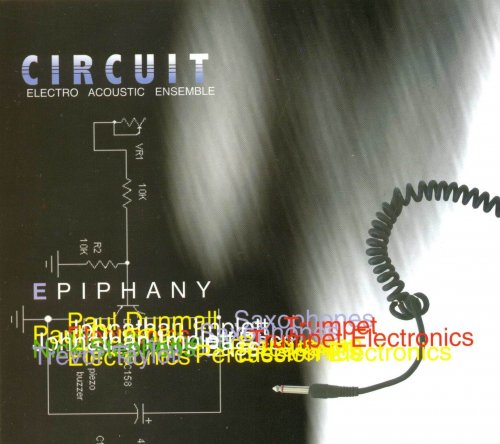
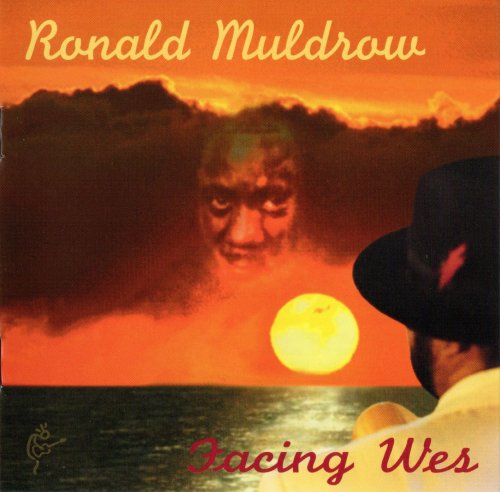
![Hans Backenroth - For Ray, Milt & MJQ (2026) [Hi-Res] Hans Backenroth - For Ray, Milt & MJQ (2026) [Hi-Res]](https://www.dibpic.com/uploads/posts/2026-02/1771506232_lbvu33sttdof0_600.jpg)
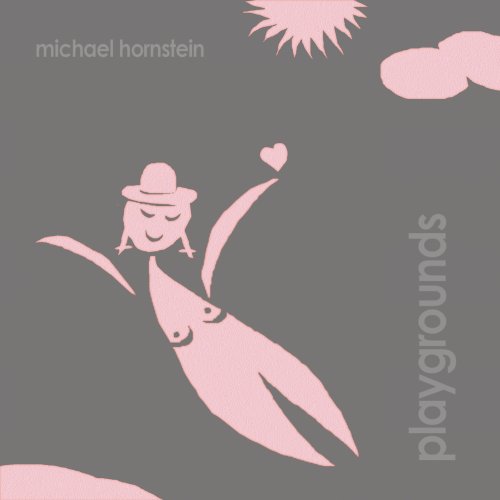
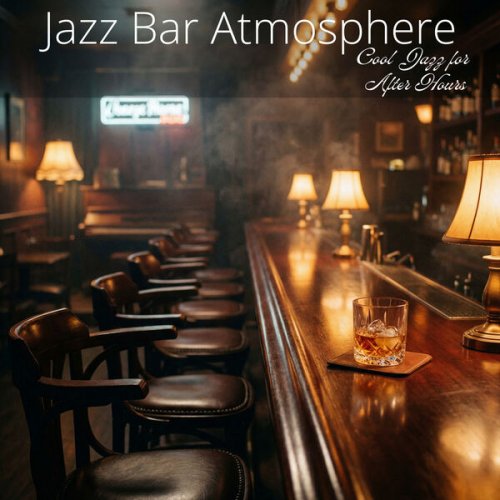
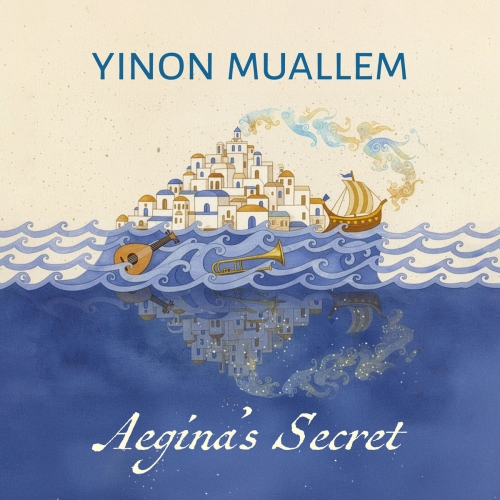
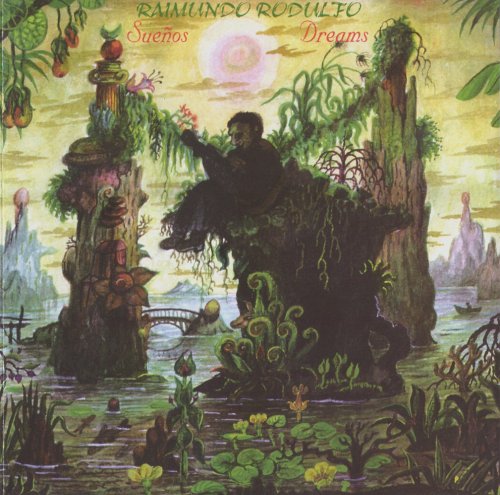

![Vivian Rosie - Twilight Voodoo (2026 Remaster) [Hi-Res] Vivian Rosie - Twilight Voodoo (2026 Remaster) [Hi-Res]](https://www.dibpic.com/uploads/posts/2026-02/1771389602_cover.jpg)